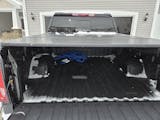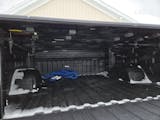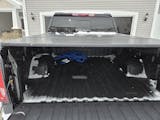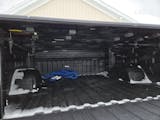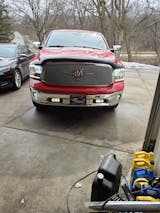How to fix catalytic converter without replacing?
The catalytic converter is an important part of your vehicle's exhaust system. It reduces harmful emissions by converting toxic gases like carbon monoxide, hydrocarbons, and nitrogen oxides into less harmful substances like carbon dioxide and water vapor. Over time, catalytic converters can become damaged or clogged, which can cause your car to malfunction. While replacing a catalytic converter can be expensive, costing you around $1,000 to $2,500, there are several ways to repair it or extend its life without replacing it completely. This article will explore various ways to fix catalytic converter problems without going through an expensive replacement, which is a widespread option. Let's get started!

When does the catalytic converter need to be repaired?
If you notice any of the following issues with your car, it's time to get it repaired.
Reduced Engine Performance
When you feel a sluggish or difficult acceleration when you step on the accelerator, or even a significant drop in fuel efficiency, it may be that your catalytic converter is clogged or malfunctioning, causing your engine performance to be significantly reduced and restricting its exhaust. If the catalytic converter is clogged abnormally, it will not be able to release gas quickly enough, causing the engine to not run properly.
Excessive Emissions
The single most important function of a catalytic converter is to reduce exhaust emissions. When it malfunctions, it can lead to increased harmful emissions. If your vehicle emits more visible smoke than usual, or there is a sulfur smell in the exhaust, your catalytic converter is contaminated and needs to be repaired. The vehicle will fail the emissions test due to elevated levels of pollutants.
Check Engine Light (CEL) Illuminates
The Check Engine Light is also a quick way to tell if your catalytic converter is malfunctioning. Modern vehicles are equipped with oxygen sensors that monitor the efficiency of your catalytic converter. If the oxygen sensor detects poor performance or excessive emissions, it will trigger the Check Engine Light. This is the most obvious sign of a problem with your catalytic converter.
Reduced Fuel Consumption
When the catalytic converter is clogged, the back pressure (i.e. the resistance to exhaust gas discharge) of the exhaust system will increase. This back pressure will limit the efficiency of the engine to discharge exhaust gas, resulting in restricted airflow during the engine combustion process. The increased back pressure limits the power output of the engine, making it unable to fully perform its performance. This causes the driver to reduce acceleration or drive at high speeds, which indirectly reduces fuel consumption.
Rattling Noises
If you hear a rattling noise under your vehicle when you start the engine, your catalytic converter is likely damaged. The catalyst structure inside the catalytic converter will loosen or even crack after being exposed to high temperatures or used for a long time. It will collide with the housing or other parts when the engine is running, causing the rattling noise. In addition, the material of the catalytic converter will age and the internal metal will become brittle, causing cracks or fragments in the internal catalyst structure, which will also cause a rattling noise. In either case, it means that you need to repair or replace the catalytic converter.
Overheating
When your catalytic converter itself has a problem, the catalyst inside it will be carbonized, clogged, or aged, causing it to not work properly, which will cause overheating. At this time, you will find abnormal heat around the exhaust system and the vehicle engine temperature will be higher than usual. You may need to repair the catalytic converter.

Fix quickly for catalytic converter
If you are experiencing catalytic converter failure, there are some short-term measures you can consider to help you get the repair done:
Use fuel additives
Some additives can clean carbon deposits in the catalytic converter and oxygen sensor. Regular use of fuel system cleaner can help relieve minor blockages or contamination in the catalytic converter. Helps clean your car's catalytic converter.
Cleaning the catalytic converter
If your catalytic converter has accumulated debris and is slightly blocked, cleaning is a very effective means. Using some cleaner, adding it to the fuel or spraying it directly into the intake system, can effectively break down the carbon or contaminant accumulation inside the converter. Alternatively, you can also try to use a pressure washer to powerfully clean the inside of the catalytic converter.
Solve exhaust problems
Exhaust leaks can affect the function of the catalytic converter. Leaks allow unfiltered exhaust gas to enter, affecting the performance of the catalytic converter. Check the exhaust system for visible holes or cracks. If a small leak is found, it can be temporarily repaired with exhaust repair tape or high-temperature sealants available at auto parts stores. This is cheaper than replacing the entire catalytic converter and can restore the vehicle to normal operation.
Make Your Catalytic Converter Last Longer
If your catalytic converter is badly damaged or even melted, you have to replace it with a new one. This is usually expensive, but you can extend its life as much as possible by using these tips:
Drive Your Car Efficiently
Changing your driving habits can go a long way toward extending the life of your catalytic converter. Maintaining a steady speed instead of rapid acceleration and braking allows the engine and exhaust system to work more efficiently, reducing the risk of overheating. Avoiding aggressive driving, such as rapid acceleration or sudden stops, can cause the catalytic converter to overheat. This heat can damage internal components, leading to premature failure.
Additionally, frequent short trips prevent the catalytic converter from reaching optimal temperature, which can reduce its efficiency and lifespan. Longer trips ensure that the converter remains hot enough to burn off harmful emissions and prevent buildup, allowing the engine and catalytic converter to work more efficiently.
Drive the Vehicle Regularly
Don't let your car sit for weeks without being driven. If your vehicle is not driven often, consider taking it for a long drive at least once a month. This will allow the catalytic converter to reach optimal temperature and help prevent clogging and inefficiency caused by inactivity.
Regular Engine Maintenance
A healthy engine ensures that the catalytic converter is running efficiently. Oxygen sensors are responsible for regulating the fuel-to-air ratio in the engine. If they malfunction or give inaccurate readings, the engine may run too rich or too lean, leading to overheating and catalytic converter damage. Spark plug failure is one of the most common causes of engine misfires. Regularly changing spark plugs, replacing oxygen sensors, etc., will help maintain optimal engine performance and reduce the risk of harmful chemicals entering the catalytic converter. The foundation of a healthy catalytic converter is a well-maintained engine.
Use High-Quality Fuel
Poor quality fuel results in incomplete combustion and the catalytic converter has to work harder to process harmful emissions. Always use premium gasoline with the recommended octane rating to prevent vehicle damage. Avoid using fuel that has too high an ethanol content.

Conclusion
Repairing your catalytic converter instead of replacing it can save you time and money, but it's important to approach the problem with caution. Properly diagnosing the problem, cleaning the converter, repairing related parts (such as the oxygen sensor), and taking preventive measures can significantly extend the life of your catalytic converter. However, if the converter cannot be repaired, replacement is the only option to restore your vehicle's performance and meet emissions regulations. If you're unsure of the severity of the problem or the best course of action to take for your vehicle, always consult a professional mechanic.
Featured Products
- $479.99
$499.99- $479.99
- Unit price
- / per
- $549.99
$559.99- $549.99
- Unit price
- / per
- $489.99
- $489.99
- Unit price
- / per
- $469.99
$489.67- $469.99
- Unit price
- / per









